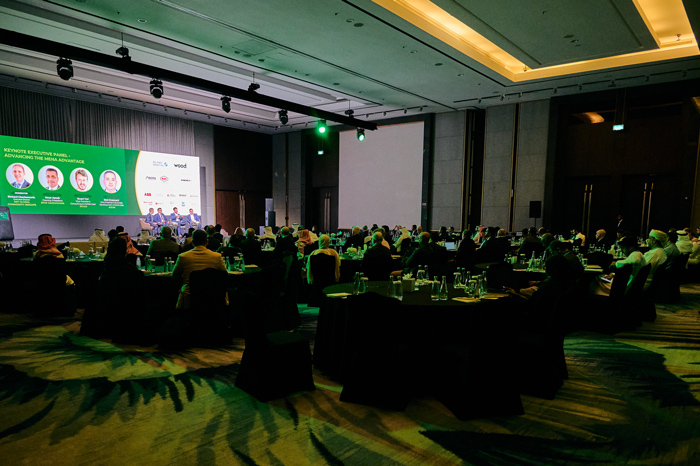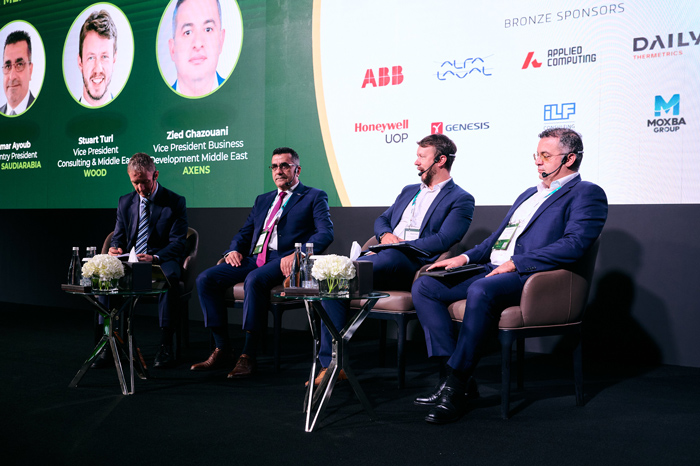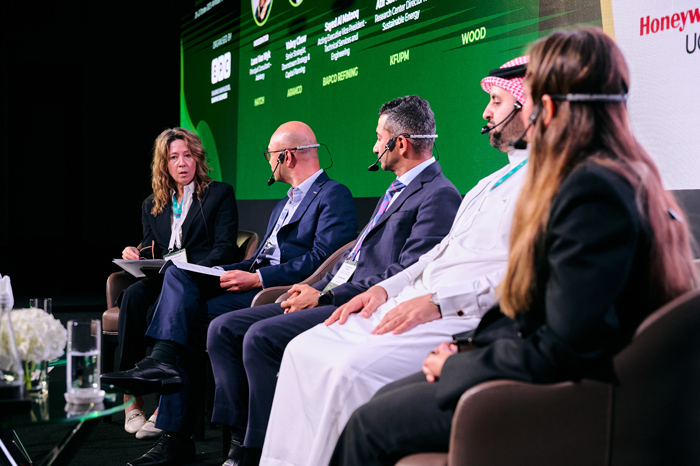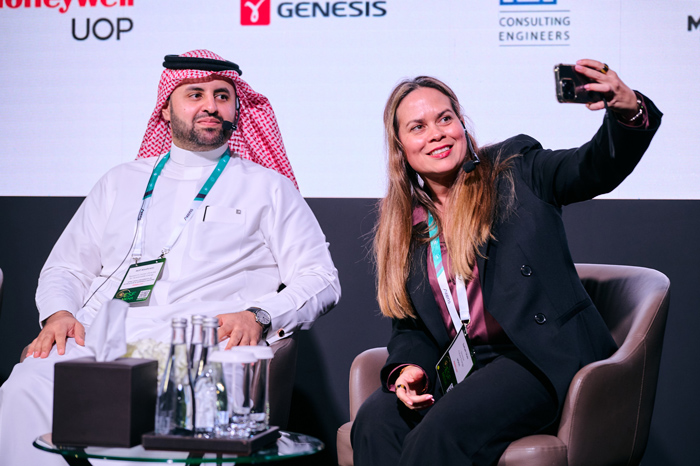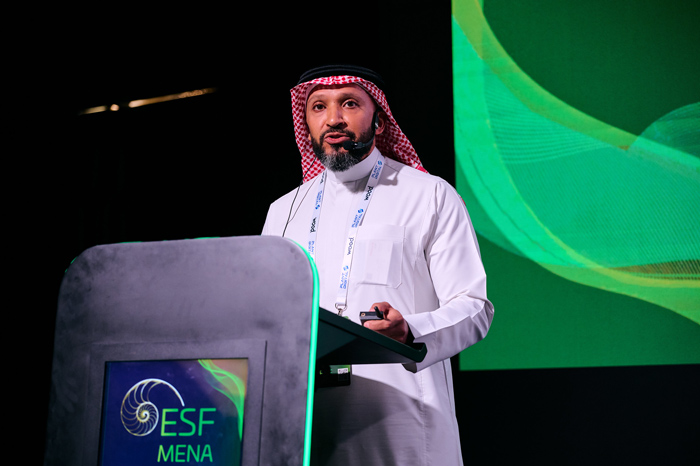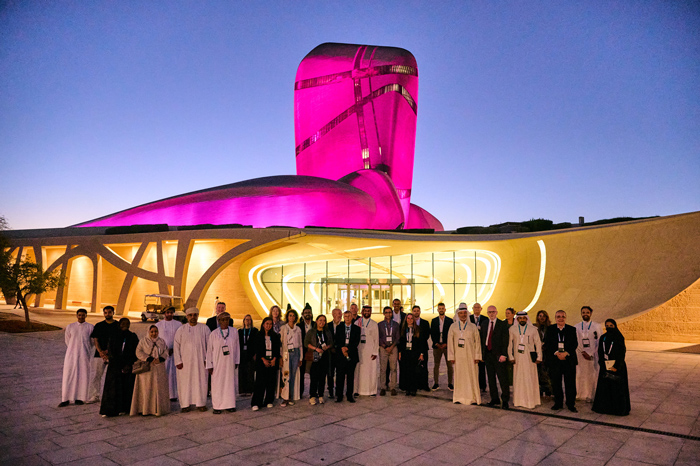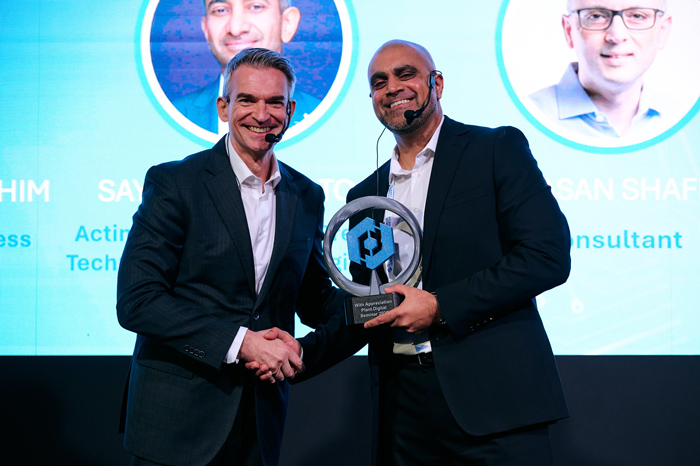October 2026
Middle East
ENERGY & SUSTAINABILITY FORUMOctober 2026
Decarbonising the Downstream Industry
I'm Interested in ESF MENA 2026Thank you, Al Khobar!
A sincere thank you to everyone who joined us at ESF MENA 2025. Your ideas, collaboration, and commitment helped make this year’s forum a true success. We were honoured to be back in Saudi Arabia, at the heart of the global energy landscape, and we hope the event contributed to shaping a smarter, cleaner, and more connected energy future together.
Register your interest to receive updates and be among the first to hear about the next edition!
Welcome to ESF MENA – Energy & Sustainability Forum
ESF MENA, the premier platform for industry leaders, innovators, and policymakers driving the future of energy and sustainability in the Middle East.
This year's forum comes at a pivotal moment for the region's refining, petrochemicals, and energy sectors – sectors that are uniquely positioned to lead in low-carbon innovation, circular solutions, and industrial transformation aligned with national visions such as Saudi Vision 2030 and the UAE Net Zero 2050 initiative.
Over two content-rich days, we'll explore how bold strategies, emerging technologies, and regional collaboration can unlock new pathways toward decarbonisation and sustainable growth. Whether you're here to share insights, forge partnerships, or shape the agenda, your voice is essential to the conversation.
ESF MENA is the only event in the Middle East dedicated to sustainability and the decarbonisation of the downstream sector. Be part of this vital journey toward a more sustainable, competitive, and resilient energy future.
Pre-Conference Seminars
MORNING SEMINAR
Is the Middle East still leading the energy transition, even when others hesitate?
Al Khobar, Saudi Arabia -
Monday, 20th
October 2025, 8:30 – 11:30
 View Details
View Details
AFTERNOON SEMINAR
How to Achieve the Planned ROI on Digital Projects
Al Khobar, Saudi Arabia
-
Monday, 20th October 2025, 12:30 – 15:30

A joint venture between Aramco and Honeywell
View DetailsKey Topics
Renewable Fuels & Technology Pathways
Sustainable Aviation Fuel (SAF), Biodiesel
Technology routes: Gasification, Fischer-Tropsch, HEFA, e-Fuels (Power-to-Liquids, Alcohol-to-Jet)
Circular Solutions & Advanced Recycling Technologies
Mechanical and chemical recycling, including gasification, POX, and pyrolysis
Circular economy models for plastics and waste streams
Renewable Chemicals & Biobased Plastics
Bio-based intermediates, polymers, and sustainable alternatives to conventional petrochemicals
Green Hydrogen, Ammonia & Methanol
Low-carbon fuel and feedstock options for industrial decarbonisation and export potential
Carbon Capture Technologies & Solutions
CCS/CCUS for refining, petrochemicals, and power
Integration with hydrogen and circular carbon pathways
Energy & Operational Efficiency
Strategies to reduce energy intensity and operational costs
Heat integration, process intensification, and real-time monitoring
Digitalisation & AI Applications for Efficiency
AI and data-driven optimisation
Predictive maintenance, digital twins, and advanced analytics
Asset & Process Optimisation
Enhancements in wastewater treatment, emissions control, and reliability
Debottlenecking and lifecycle efficiency improvements
Catalyst Technologies & Bio Feedstock Applications
Catalytic innovations for processing bio-based and waste-derived feedstocks
Waste-to-Energy
Thermal and biological pathways for converting waste into usable energy and fuels

2025 Advisory Meeting Takeaways Report
Meeting held on the 27th May 2025
Highlights and key takeaways from the 90 minute discussion
Download NowVideo Testimonials & Interview
Testimonials

From my experience, this event is one of the most well organised, with well-known speakers and informative presentations and sessions and the exhibition was also good. The event outlined the challenges faced by the Middle East on decarbonization tragets. The presentations and discussions were aimed at addressing net-zero emission targets.
ARAMCO

The speakers and panellists of ESF MENA are leaders, who are highly knowledgeable and passionate about making a change and directing the industry into a more sustainable future. It was my honour to attend this well-organised event and meet and listen to the most knowledgeable people from the industry.
KIPIC
-ltd..jpg)
Attending the event was an incredibly enriching experience. The event brought together technology providers and industry leader/SMEs who shared valuable insights on reducing carbon emissions. The panel discussions and presentations were highly informative and focused on solutions and advice on the challenges for decarbonization. Looking forward for next event in 2024.
YASREF

Very interesting event with great opportunities for networking, learning more about energy and getting to know the different companies around the world and learn about their activities.
SABIC

A great event that leaves us with nothing more than hope and motivation to steer out industy paths towards a sustainable future!
OQ

An excellent forum, providing a platform to learn the latest technologies and communicate with SME's. It is the place where collaboration starts!
BAPCO ENERGIES

It is a great event to get an overview on what is the future in Oil Downstream, and a great opportunity to expand your network. All discussions were really good lead and the participants were open to discuss strategic and technical topics.
OMV

ESF has brought together all stakeholders in our downstream industry. Euro Petroleum Consultants have professionally organized a very comprehensive agenda and platform on which there is a great open exchange of insights and new developments that help all industry stakeholders prepare better for a sustainable future.
LUMMUS TECHNOLOGY

We are proud to have participated in the Energy & Sustainability Forum MENA 2023. Held in Manama, Bahrain under the theme “Decarbonizing the Downstream Industry”, we shared valuable insights about how we are producing low-cost green hydrogen at scale for the downstream industry to support global net-zero targets.
NEOM Green Hydrogen Company
Other ESF Events
Media
Contact the Organisers
+971 (0)4 421 46 42 mark@europetro-me.com

